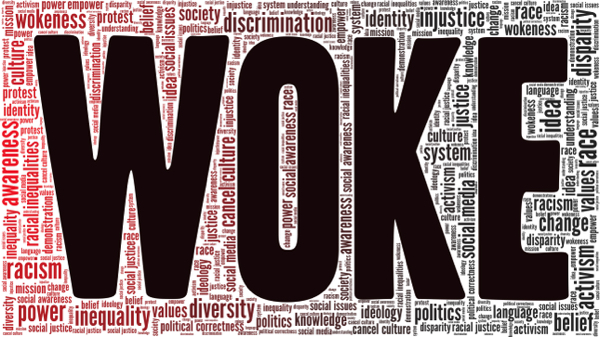“The Myths of Zionism”: John Rose challenges historical narratives and political dogma
04/08/2025 / By Belle Carter

- Ehud Barak’s claim that “lying” is intrinsic to Arab culture reflects the Zionist ideology’s own myths, as dissected by John Rose in “The Myths of Zionism.” Rose argues that these narratives distort history to justify political aims.
- Rose debunks Zionist claims of divine entitlement to Palestine, highlighting how leaders like Ben-Gurion manipulated biblical stories while ignoring archaeological evidence (e.g., the lack of proof for a unified “Ancient Israel”).
- The Zionist narrative of 2,000 years of exile erases thriving Jewish-Arab communities in places like medieval Spain and the Ottoman Empire, marginalizing Mizrahi Jews to fit a European-centric “Diaspora suffering” trope.
- Rose exposes systemic efforts to negate Palestinian identity, from early Zionist slogans (“a land without a people”) to the destruction of Palestinian archives and landmarks, reinforcing settler-colonial goals.
- Some Zionists collaborated with anti-Semitic regimes (e.g., the 1933 Haavara Agreement with Nazi Germany) to fuel Jewish migration to Palestine, prioritizing nationalist expansion over coexistence. Rose concludes by advocating for grassroots movements and shared futures, urging a reevaluation of historical myths to pursue justice.
In 2002, former Israeli Prime Minister Ehud Barak ignited controversy by asserting that “lying” was intrinsic to Arab culture – a statement that British sociologist John Rose dissects in his provocative 2004 book, “The Myths of Zionism.” Rose argues that Barak’s remark exemplifies psychological projection, revealing more about Zionist ideology than its supposed subject. Through meticulous historical analysis, Rose deconstructs foundational Zionist narratives – biblical claims to Palestine, the myth of Jewish exile and the erasure of Palestinian identity – exposing what he calls a deliberate “edifice of lies” shaping the Israeli-Palestinian conflict. Drawing on archaeology, political archives and marginalized voices, Rose challenges readers to reconsider long-held assumptions about nationalism, religion and colonialism in the Middle East.
Central to Zionist mythology, Rose contends, is the assertion that the Hebrew Bible grants Jews divine entitlement to historic Palestine. He scrutinizes the political manipulation of scripture by figures like Israel’s first prime minister, David Ben-Gurion, who famously declared, “A myth can become a fact if people believe in it strongly enough.” Ben-Gurion’s government, Rose writes, selectively amplified biblical tales – such as the Exodus and King David’s kingdom – while sidelining archaeological evidence contradicting their historicity. Modern excavations, Rose notes, increasingly debunk the notion of a unified “Ancient Israel,” with scholars like Israel Finkelstein demonstrating that key biblical narratives lack empirical foundations.
Zionist historiography, Rose argues, hinges on the claim that Jews endured 2,000 years of exile yearning for a return to Palestine – a narrative he calls “ahistorical.” Jewish communities, particularly under Islamic rule in medieval Spain and the Ottoman Empire, often thrived culturally and economically. “The ‘exile’ framework erases centuries of Jewish life in Baghdad, Cairo and Cordoba,” Rose writes, highlighting how Zionism marginalized Mizrahi Jews whose histories contradicted the European-centric “Diaspora suffering” trope.
This omission, he asserts, served a political purpose: severing Jewish identity from its Arab-Islamic context to legitimize settler colonialism. Rose cites medieval philosopher Moses Maimonides, who wrote in Arabic and served in the court of Saladin, as emblematic of pre-Zionist Jewish-Arab integration.
Rose delves into declassified documents revealing how Ben-Gurion undermined secret 1950s peace talks with Egypt’s President Gamal Abdel Nasser. Despite Nasser’s openness to recognizing Israel in exchange for Palestinian refugee rights, Ben-Gurion rejected compromise, fearing it would dilute Jewish demographic dominance. “Zionism’s priority was never coexistence but conquest,” Rose argues, drawing parallels to later failed accords like Oslo.
The book introduces “politicide” – a term coined by scholar Baruch Kimmerling to describe systemic efforts to negate Palestinian nationhood. Rose traces this to early Zionist slogans like “a land without a people for a people without land,” which denied indigenous presence. He quotes Palestinian historian Nur Masalha: “Our archives, our olive trees, even our cemeteries were obliterated to manufacture the myth of emptiness.”
In one of his most contentious chapters, Rose alleges that Zionist leaders instrumentalized European anti-Semitism to fuel migration to Palestine. He cites collaborations between early Zionists and anti-Semitic regimes, including the 1933 Haavara Agreement with Nazi Germany, which facilitated Jewish emigration while transferring assets to Palestine. “Some Zionists saw anti-Semitism as a useful tool,” Rose writes, quoting dissident Jewish philosopher Hannah Arendt’s critique of nationalist “tribalism.”
Despite its bleak assessments, The Myths of Zionism concludes with cautious optimism. Rose points to pre-1948 Jewish-Arab labor movements and modern grassroots initiatives like the binational One Democratic State campaign as models for shared futures. “History isn’t predetermined,” he insists. “The same energy spent mythologizing the past could build a just peace.” (Related: The Jewish Radicals: A history of Revisionist Zionism and its controversial legacy.)
While praised by scholars like Ilan Pappé for its “unflinching revisionism,” the book has faced backlash from pro-Israel groups accusing Rose of minimizing Jewish historical ties to the land. Rose counters: “Critiquing nationalism isn’t denying identity – it’s refusing to let myths justify oppression.”
Two decades after its publication, “The Myths of Zionism” remains acutely relevant amid escalating violence in Gaza and the West Bank. As debates over “decolonization and apartheid analogies enter mainstream discourse, Rose’s work challenges readers to interrogate the stories that shape geopolitics – and imagine alternatives beyond them.
Rose’s book is a call to dismantle not just physical walls but ideological ones. Whether one agrees with his conclusions, “The Myths of Zionism” forces a reckoning with history’s contested narratives — and who benefits from their perpetuation.
Learn more about the book “The Myths of Zionism” by watching the video below.
This video is from the BrightLearn channel on Brighteon.com.
Sources include:
Submit a correction >>
Tagged Under:
anti-Semitism, big government, conspiracy, culture wars, deception, deep state, Ehud Barak, Fact Check, Gaza, insanity, Israel, Israel-Palestine conflict, Jewish-Arab integration, lies, Palestine, politicide, politics, propaganda, real history, truth, Tyranny, zionism
This article may contain statements that reflect the opinion of the author
RECENT NEWS & ARTICLES
COPYRIGHT © 2017 DEEP STATE NEWS




















